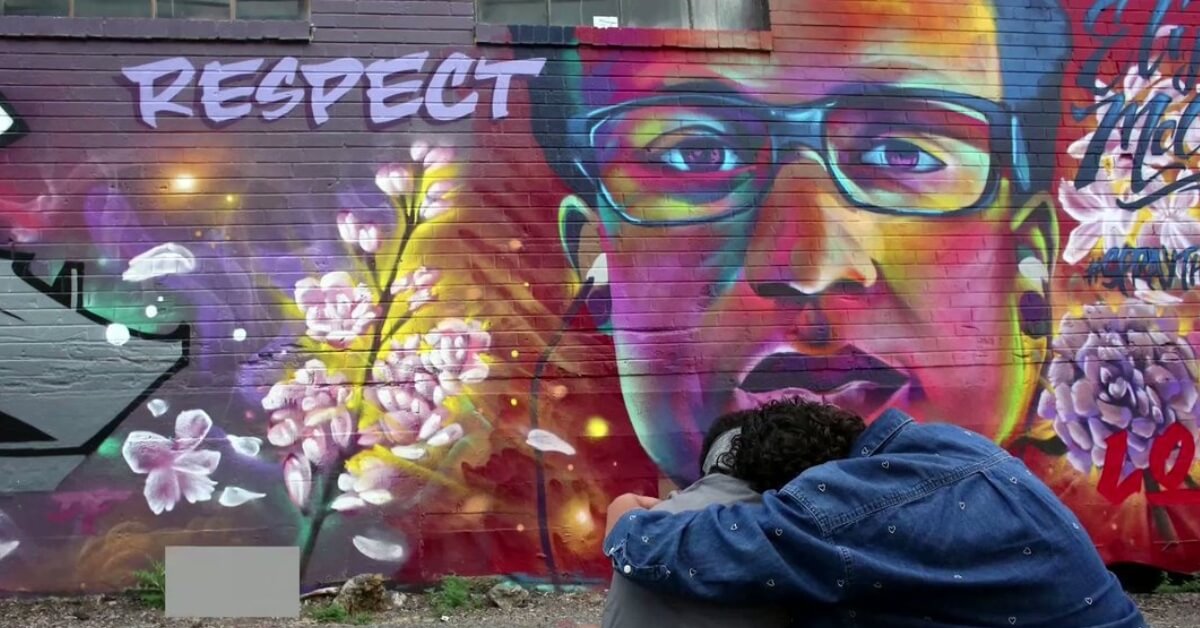Elijah McClain, a 23-year-old massage therapist, achieved his GED at Emily Griffith Technical College in Denver at 19.
Known for his gentleness, he played the guitar and violin, even performing for cats at an animal shelter during his lunch breaks.
He wanted to change the world, and ironically, he did. It all happened because he was stopped one night by the police. But what made officials stop him in his tracks?
On August 24, 2019, in Aurora, Colorado, 23-year-old unarmed Elijah McClain was walking home after a trip to a store, wearing a ski mask and listening to music. A 911 call reported him as “looking sketchy.” Officers confronted McClain, telling him to stop walking and questioning him solely due to his appearance, deeming him suspicious.
Explained: The Story of Elijah McClain and Why He Was Stopped
On August 24, 2019, a tragic incident occurred in Aurora, Colorado, that would ignite a nationwide conversation about race and policing.
Elijah McClain, a 23-year-old black man, was walking home from a convenience store, minding his own business, listening to music, and wearing a ski mask because of a blood disorder when a 911 caller reported him as “looking sketchy.”
Little did he know that this call would lead to his untimely death and become a focal point of protests and social outcry.
Elijah McClain, who was neither armed nor involved in any criminal activity, encountered the police that fateful day.
The bodycam footage released later depicted a disturbing sequence of events. Officers approached McClain, instructing him to stop walking and questioning him based on his appearance, deeming him suspicious.
Despite McClain’s compliance and attempts to assert his introverted nature by saying, “I am an introvert. Please respect the boundaries that I am speaking,” it didn’t help. In fact, it made the situation escalate rapidly.
The officers attempted to physically restrain McClain, who resisted their efforts, repeatedly pleading that they respect his boundaries.
Moments later, McClain found himself on the ground, held in a neck hold, desperately moaning, sobbing, and expressing pain.
He even tried to turn to his side to vomit, but an officer threatened to bring a dog to bite him if he continued “messing around.” The young man hurled and apologized, stating he couldn’t breathe correctly.
As if the situation couldn’t get any worse, paramedics arrived and administered a sedative, ketamine, to McClain.
Shockingly, they waited nearly seven minutes before interacting with him. Tragically, he suffered a cardiac arrest on his way to the hospital and passed away a few days later.
An autopsy later revealed that Elijah McClain, who stood at 5ft 6in and weighed only 140 pounds, had been injected with an excessive dose of ketamine, 500 mg, far beyond what his body could tolerate.
The coroner’s amended report unequivocally stated that this overdose was the primary cause of his death.
This heartbreaking incident shook the nation, prompting widespread calls for justice and reform in policing.
What Was The Aftermath of Elijah McClain’s Death?
A grand jury has indicted five individuals involved in the tragic incident that resulted in the death of Elijah McClain.
The incident involved two Aurora Police officers, Randy Roedema and Nathan Woodyard, one former officer, Jason Rosenblatt, and former paramedics, Jeremy Cooper and Peter Cichuniec.
Each of them has been indicted on charges of manslaughter and criminally negligent homicide.
Also, Roedema and Rosenblatt have been indicted on charges of assault and crime of violence. Additionally, Rosenblatt has been terminated from his job due to his inappropriate response to a photo sent to him reenacting a neck hold similar to the one used on McClain.
The paramedics, Cooper and Cichuniec, face even more severe charges, including three counts of assault and six counts of crime of violence.
The indictment alleges that neither paramedic assessed McClain’s vital signs, engaged in meaningful communication with him, nor physically examined him before diagnosing him with a disputed medical condition known as “excited delirium.”
This diagnosis ultimately led them to administer a dose of ketamine to McClain, contributing to the tragic outcome.
All individuals involved have entered not-guilty pleas to the charges brought against them. However, the legal proceedings have already yielded significant developments.
On October 12, Officer Roedema was found guilty of criminally negligent homicide and third-degree assault by a 12-person jury. In contrast, Officer Rosenblatt was acquitted of all charges.
On December 22, the two paramedics faced their verdicts. Both were found guilty of criminally negligent homicide but were acquitted of manslaughter.
Additionally, Peter Cichuniec was found guilty of assault in the second degree due to the unlawful administration of drugs. At the same time, Jeremy Cooper was acquitted of two assault charges, and Cichuniec was acquitted of one of two assault charges.
The outcomes of these legal proceedings have elicited mixed reactions.
Elijah McClain’s mother, Sheneen McClain, celebrated the verdicts, expressing her relief and chanting, “We did it!” as she raised her fist. Also, beyond the criminal charges, McClain’s parents reached a $15 million settlement with the city of Aurora.
However, the verdicts have also sparked concerns within the medical and emergency response communities.
Some experts worry that the legal repercussions faced by the paramedics could deter medical professionals from taking necessary actions in emergencies involving police custody.
University of Miami criminologist Alex Piquero cautioned that paramedics might hesitate to act for fear of legal consequences, potentially impacting the quality of care provided to distressed individuals.
The International Association of Fire Fighters has also expressed its reservations, asserting that pursuing criminal charges against paramedics could establish a concerning precedent, potentially discouraging split-second medical decisions during high-stress situations.
Which side of the debate are you on? What do you predict the long-reaching results of this decision to be?
Let us know your opinions in the comments below.
Source: The Independent

